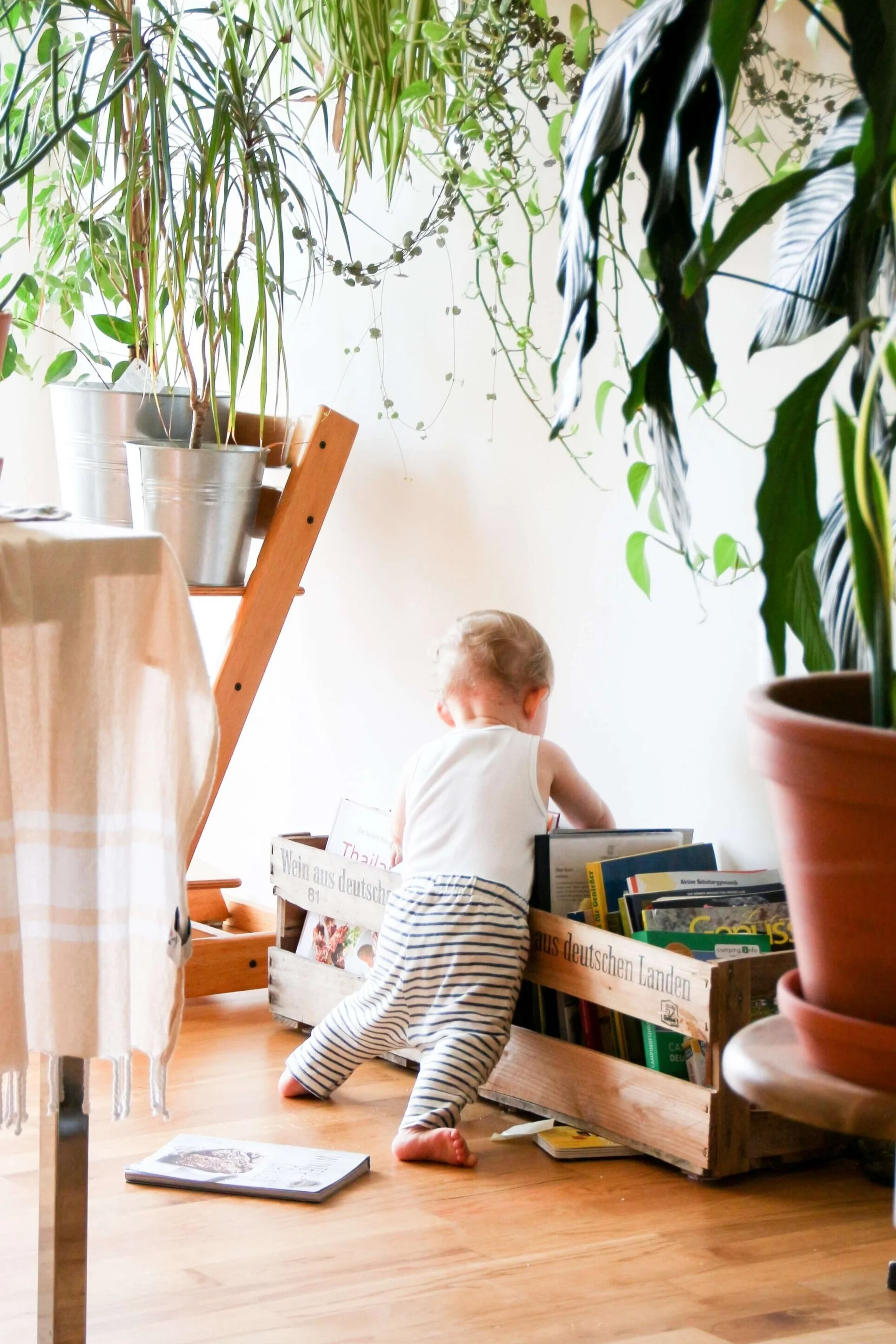Calcium Rich Foods for your Baby
With all the recommendations to ensure your baby gets enough calcium, it can be overwhelming to know if they’re getting enough calcium from their diet. In most cases, the answer is yes, they are probably getting enough calcium. However, keep reading if you’d like to see which foods are high in calcium (and they aren’t all dairy - there are heaps of dairy free sources of calcium!).
Why is calcium so important for your baby?
99% of our calcium is stored in the bones, and our bones are kind of a storage system for the rest of the body. If calcium is needed elsewhere (and cannot be accessed from diet), the body is able to remove it from the bones and release it into the bloodstream for use.
Babies require calcium for health bone formation, for without a healthy structure, their movement abilities will be hindered. On top of that, our bodies need calcium for lots of biochemical processes, including:
nerve impulse transmission
blood clotting
muscle contraction
appetite regulation
brain function
Aside from the brain and nervous system (which we all know is my favourite thing about the body), calcium is required for maintaining pH balance in the blood. Calcium is also important for controlling levels of magnesium, phosphorus and potassium in the blood.
Calcium and brain function
Calcium is required for brain nerve cells to be able to communicate with each other, and this is very important for brain development. The brain is making so many new connections in the first 2 years of life, before it starts to stabilise. So having calcium in those first 2 years will support healthy brain function in your baby, for years to come!
It is also required for the brain’s ability to clean and detoxify itself, the development of neurotransmitters such as serotonin and dopamine, AND the development of long term memory.
How much calcium does my baby need?
According to the National Institutes of Health, here are the recommended daily value for calcium:
Birth to 6 months, 200 mg
Infants 7–12 months, 260 mg
Children 1–3 years, 700 mg
Breastfed babies will get a lot of their calcium needs from breastmilk, for the first 6 months of life. As they get older, you can see calcium needs triple by the time they are 12 months of age! At this point, it’s important they are getting calcium from their diet, even if they are still breastfed.
Calcium needs during pregnancy
Pregnant women require 1000mg of calcium a day - purely because our babies SUCK US DRY (not just of calcium, but of everything!). Honestly. If you don’t have enough calcium in your diet, your baby will take your calcium from your bones and teeth! In fact many women will have issues with their teeth during pregnancy and calcium deficiency can be a contributing factor.
So if you’re pregnant, or planning to be pregnant, ensure you are taking a calcium supplement to support your body (and grow a human!).
There is a theory that we store many heavy metals and toxins in our boney structure, and if we are releasing our body’s calcium from the bones, we are releasing toxins too. This is another reason why ensuring you’re getting enough calcium from diet and supplementation is important during pregnancy (nobody wants to be potentially exposing their baby to released toxins).
What are the best calcium rich foods for babies?
There are plenty of calcium rich foods that babies can easily eat. And while dairy is often the first thing we think of when we think calcium (thanks to the dairy industry marketing!), there are loads of paleo and dairy free options available too. Our family personally does not eat dairy, as a lifestyle choice, and get most of our calcium from nuts, sardines, salmon and green leafy veg.
Here’s a list of some of the foods with high calcium levels:
yoghurt
milk
kale
tofu
salmon
broccoli
chinese cabbage
sardines
almonds
brazil nuts
sunflower seeds
bok choy
tahini
What are some dairy free sources of calcium?
While a lot of the foods above are already dairy free, there are some additional dairy-free foods (that are also high in protein) that are suitable for a dairy free diet.
These include oranges, figs, prunes, sardines, peas, collard greens, white beans, edamame, red beans, and chia seeds.
How can I help my baby get enough calcium?
Realistically, you don’t have to work too hard to get enough calcium into your baby. The majority of us get sufficient calcium from our diet, and if you’re breastfeeding, your baby will get extra calcium there too.
As I mentioned above, if you’re breastfeeding, you need to ensure you’re consuming enough calcium for both you and your baby’s needs. So it’s best you continue with your breastfeeding multi, or you might start releasing calcium from your own bones. And we don’t want that!
If you have a wholefoods focus in your diet (whether you are paleo, high fat low carb, or vegan), your baby will be able to get sufficient calcium from their daily diet. And here’s the real kicker - you can absolutely do it without dairy, so don’t be told otherwise!

